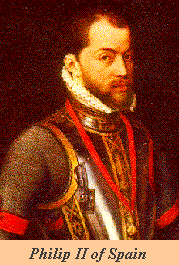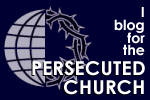U.S. History, Christianity, and Politics Part 4
 This is a new series that will reflect on the rich history of the United States and the part Christianity, politics, corruption, racism, and persecution has played before and after this great nation began. It is important that we remind ourselves of the factual history of the United States and the important role Christianity has in this country today as well as to remember the hardships endured by the people of the past. Some of the actions of "Christians" have not been Christian like at all, and by reviewing history, we hope that mistakes are not repeated again. We will first cover the history leading up to the founding of the United States of America.
This is a new series that will reflect on the rich history of the United States and the part Christianity, politics, corruption, racism, and persecution has played before and after this great nation began. It is important that we remind ourselves of the factual history of the United States and the important role Christianity has in this country today as well as to remember the hardships endured by the people of the past. Some of the actions of "Christians" have not been Christian like at all, and by reviewing history, we hope that mistakes are not repeated again. We will first cover the history leading up to the founding of the United States of America.
English and French Beginnings
In 1497 the Italian John Cabot (Giovanni Caboto), sailing under the sponsorship of the king of England in search of a Northwest Passage (a water route to the Orient through or around the North American continent), became the first European since the Viking voyages more than four centuries earlier to reach the mainland of North America, which he claimed for England.
In 1524 the king of France authorized another Italian, Giovannia da Verrazzano, to undertake a mission similar to Cabot's. Endeavoring to duplicate the achievement of Portugal's Ferdinand Magellan, who had five years earlier found a way around the southern tip of South America, Verrazzano followed the American coast from present-day North Carolina to Maine.
Beginning in 1534, Jacques Cartier, also authorized by the king of France, mounted three expeditions to the area of the St. Lawrence River, which he believed might be the hoped-for Northwest Passage. He explored up the river as far as the site of Montreal, where rapids prevented him-or so he thought- from continuing to China. He claimed the area for France before abandoning his last expedition and returning to France in 1542. France made no further attempts to explore or colonize in America for 65 years.
England showed little interest in America as well during most of the sixteenth century. But when the English finally did begin colonization, commercial capitalism in England has advanced to the point that the English efforts were supported by private rather than government funds, allowing the English colonists to enjoy a greater degree of freedom from government interference.
Partially as a result of the New World rivalries and partially on account of differences between Protestant and Catholic countries, the sixteenth century was a violent time both in Europe and in America. French Protestants, called Huguenots, who attempted to escape persecution in Catholic France by settling in the New World were massacred by the Spaniards. One such incident led the Spaniards, nervous about any possible encroachment on what they considered to be their exclusive holdings in America, to build a fort that became the beginning of a settlement at St. Augustine, Florida, the oldest European settlement in what is now the United States. Spanish priests ventured north from St. Augustine, but no permanent settlements were built in the interior.
French and especially English sea captains made great sport of and considerable profit from plundering the Spaniards of the wealth they had first plundered from the Indians. One of the most successful English captains, Francis Drake, sailed around South America and raided the Spanish settlements on the Pacific coast of Central America before continuing on to California, which he claimed for England and named Nova Albion. Drake then returned to England by sailing around the world. England's Queen Elizabeth, sister and Protestant successor to Mary, had been quietly investing in Drake's highly profitable voyages. On Drake's return from his round-the-world voyage, Elizabeth openly showed her approval.
Angered by this as well as by Elizabeth's support of the Protestant cause in Europe, Spain's King Phillip II in 1588 dispatched a mighty fleet, the Spanish Armada, to conquer England. Instead, the Armada was defeated by the English navy and largely destroyed by storms in the North Sea. This victory established England as a great power and moved it a step closer to overseas colonization, although the war with Spain continued until 1604.
CREDIT: "Our Great Nation" Resources for Teachers, 2002.
Technorati:us history,us-history,politics,christian history,christian-history,history,learn from mistakes
Labels: Learn from the Past, US HIstory

















0 Comments:
Post a Comment
Links to this post:
Create a Link
<< Home